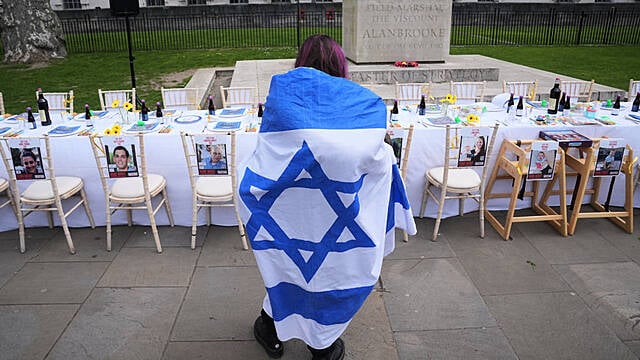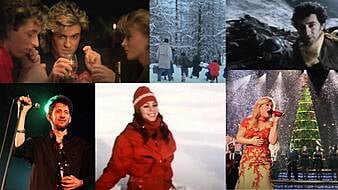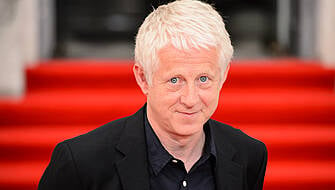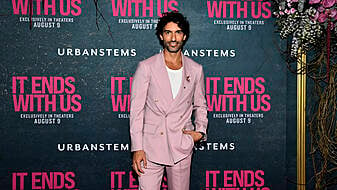The Israel entrant for the Eurovision Song Contest will perform amid several campaigns to block the country from taking part this year following an outbreak of war in the Middle East.
Before even taking part, Eden Golan being in the contest on Thursday at Malmo Arena has drawn a backlash following Israel being attacked and the fallout of conflict in the Gaza Strip seeing more than 33,000 Palestinians killed since October.
The Israel-born singer, who grew up in Russia, saw her original track, October Rain, cause controversy as the lyrics were thought to reference militant group Hamas kidnapping and killing Israelis on October 7th and has since been changed.
In March, Israel unveiled Hurricane, a soulful and heartfelt track that was then approved by the European Broadcasting Union (EBU).
Here is a round-up of questions about Israel taking part:
View this post on InstagramAdvertisement
Why is Israel in the contest?
Non-European countries are far more common than one might expect.
Israel made its Eurovision debut in 1973. It became eligible after becoming part of the European Broadcasting Union, which is behind the event.
The rule also allows countries like Azerbaijan, who hosted in 2012, and Georgia to compete.
EBU has defended its decision to allow Israel to compete and the country being different from Russia who invaded Ukraine.
On the Eurovision website, it states “Russian public service broadcasters had their EBU membership suspended in 2022 due to consistent breaches of membership obligations and the violation of public service media values”.
Defending the decision on Sunday Morning With Trevor Phillips, Jean Philip De Tender, the deputy director general of the European Broadcasting Union (EBU) said if you “exclude Kan (Israeli public broadcaster) outside of these competition rules, that would have been a political decision, as such, which we cannot take” as an apolitical member organisation.
He also said: “We do understand the concerns and the deeply held views that many people have around the war in the Middle East and I think nobody can remain untouched by the profound suffering of everybody involved in that war.
“The Eurovision Song Contest is a music event which is organised and co-produced by 37 public broadcasters, so it’s not a competition between nations or governments.
“We do understand that there was some concern around Israel participating, but when our governing bodies, because we’re a member-led organisation, reviewed the participation list of this year, they concluded that Kan … met all of the obligations compared to the competing rules.”
Has Israel won?
The Eurovision has previously provided Israel with some cultural touchstones following first winning with Izhar Cohen and the Alphabeta’s Abanibi in 1978.
Hallelujah became the country’s unofficial national song after Milk and Honey won the contest for Israel in 1979, and Dana International became a national hero and global transgender icon when she won with Diva in 1998.
Netta Barzilai’s catchy pop anthem Toy won the 2018 Eurovision competition.
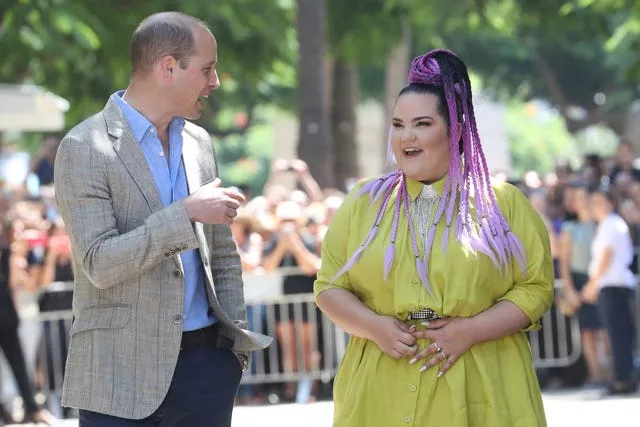
Who wants a boycott?
Following the outbreak of the Israel-Hamas war, Queers for Palestine circulated a letter signed by actors Indya Moore, Brigette Lundy-Paine and Maxine Peake calling for UK entrant Olly Alexander to stop participating.
Finnish, Swedish, Irish and Icelandic musical artists have also called for Israel to be prevented from competing and for their acts to not go along to the contest.
On April 25th, protests were held outside the BBC’s Broadcasting House in London by the LGTBQ+ solidarity group Queers For Palestine. Similar demonstrations were also held in Barcelona, Amsterdam Reykjavik.
This is not the first time there has been calls for a boycott, in 2019 when the contest was held in Tel Aviv, artists including former Pink Floyd member Roger Waters, electronic music pioneer Brian Eno and movie directors Ken Loach and Mike Leigh urged musicians not to attend.

They were criticised by Stephen Fry, Sharon Osbourne, Kiss frontman Gene Simmons, who signed an open letter from the non-profit organisation Creative Community for Peace.
What have acts said?
Years and Years singer Alexander, Irish entrant Bambie Thug along with Norway’s Gate, Portugal’s Iolanda, San Marino’s band Megara, Switzerland’s Nemo, Lithuanian singer Silvester Belt and Finland’s Windows95Man/Teemu Keisteri have all rejected calls to boycott the contest.
However, in a joint statement they did call for “an immediate and lasting ceasefire, and the safe return of all hostages” and said they “stand united against all forms of hate, including antisemitism and Islamophobia”.
Thug also told the PA news agency that they “do not agree with the decision” the EBU made by allowing Israel to take part.
“I am pro-Palestine through and through and without us there, there would be less voices that are pro,” they also said.
